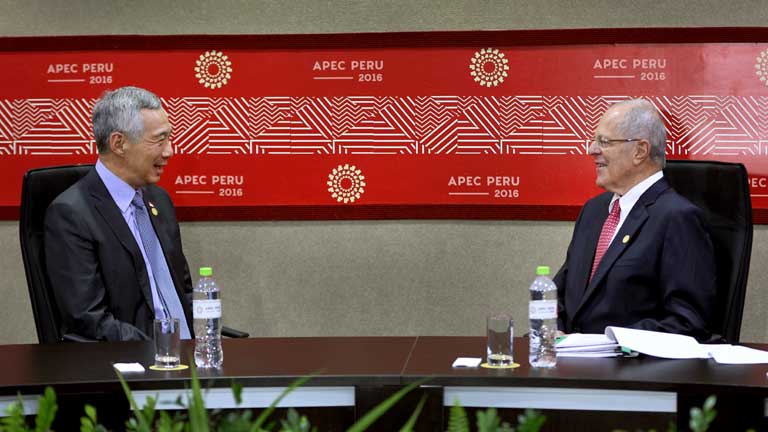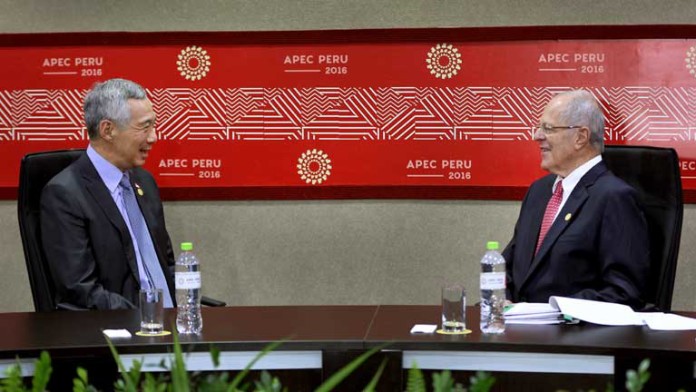LIMA, Peru: While the fate of the 12-nation Trans-Pacific Partnership (TPP) hangs in the balance, Singapore Prime Minister Lee Hsien Loong said there are other pathways to the broader Free Trade Area of the Asia Pacific (FTAAP) – a trade pact involving all 21 APEC economies.
He cited the Regional Comprehensive Economic Partnership (RCEP) and the ASEAN Economic Community as examples of “building blocks drawing economies towards an eventual FTAAP”.
Speaking at a panel discussion at the APEC CEO Summit in Lima on Friday (Nov 18), Mr Lee stressed that to ensure continued global growth, economies must press on with free trade, and pursue cooperation and integration amid political pressures.
Pointing to events like Brexit, the resurgence of far-right political parties in Europe and the reactions of lower- and middle-income white voters in the recent US presidential election, he said: “We are seeing a nativist response and reaction in developed countries by those who blame globalisation for making them worse off.”
Mr Lee added: “I still believe that trade liberalisation is a win-win proposition, but I understand why there has been a reaction against trade in many countries, and the political difficulties of a pro-trade agenda. Each country has to make sure that the benefits of trade are shared with all.”
Mr Lee noted that over the last 26 years, closer integration has brought about prosperity for APEC economies. He urged leaders to “do our best to hold on to the progress we have achieved, which has taken decades, and not do things that will hurt ourselves and lead to retaliation, undoing the progress that we have achieved over the past two decades”.
Growth remains subdued, acknowledged Mr Lee, who cited an APEC CEO survey released on Thursday which showed that only 28 per cent of all APEC business leaders are confident about growth.
Despite this, there are still “bright spots” around the world like Asia, where economies are developing, partly due to a rising middle class and rapid urbanisation.
Mr Lee highlighted China and its One Belt, One Road initiative, and India’s momentum under Prime Minister Narendra Modi’s leadership.
He noted that exploiting technology and globalisation are still the “most effective” ways to improve lives, even though it must be recognised that they cause disruption, and result in both winners and losers.
Mr Lee said this is where governments need to step in – by creating inclusive policies like affordable healthcare and investing in lifelong learning, especially as workers now need to “unlearn and learn to stay relevant”.
“In the midst of these worries, the tendency is to get caught up in the news headlines and the sense of uncertainty,” said Mr Lee. “But I think if we take a step back and focus on the fundamentals … that’s how we can deliver growth and improve the lives of our people.”
Mr Lee also called on Peruvian President Pedro Pablo Kuczynski.

Singapore’s Prime Minister Lee Hsien Loong (L) meets Peruvian President Pedro Pablo Kuczynski (R). (MCI Photo)
He congratulated President Kuczynski on his election as President and thanked Peru for its warm hospitality during its APEC Chairmanship.
Both leaders affirmed the warm friendship between Singapore and Peru. The two countries have worked well together in international forums including the UN, FEALEC and APEC.
They also discussed potential areas of cooperation between Singapore and Peru, regional and international developments, and the expected outcomes of the APEC Economic Leaders’ Meeting.
Mr Lee invited Mr Kuczynski to visit Singapore soon.





